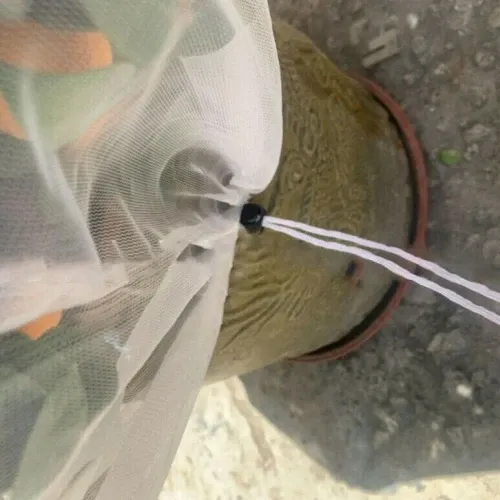-
 Afrikaans
Afrikaans -
 Albanian
Albanian -
 Amharic
Amharic -
 Arabic
Arabic -
 Armenian
Armenian -
 Azerbaijani
Azerbaijani -
 Basque
Basque -
 Belarusian
Belarusian -
 Bengali
Bengali -
 Bosnian
Bosnian -
 Bulgarian
Bulgarian -
 Catalan
Catalan -
 Cebuano
Cebuano -
 China
China -
 Corsican
Corsican -
 Croatian
Croatian -
 Czech
Czech -
 Danish
Danish -
 Dutch
Dutch -
 English
English -
 Esperanto
Esperanto -
 Estonian
Estonian -
 Finnish
Finnish -
 French
French -
 Frisian
Frisian -
 Galician
Galician -
 Georgian
Georgian -
 German
German -
 Greek
Greek -
 Gujarati
Gujarati -
 Haitian Creole
Haitian Creole -
 hausa
hausa -
 hawaiian
hawaiian -
 Hebrew
Hebrew -
 Hindi
Hindi -
 Miao
Miao -
 Hungarian
Hungarian -
 Icelandic
Icelandic -
 igbo
igbo -
 Indonesian
Indonesian -
 irish
irish -
 Italian
Italian -
 Japanese
Japanese -
 Javanese
Javanese -
 Kannada
Kannada -
 kazakh
kazakh -
 Khmer
Khmer -
 Rwandese
Rwandese -
 Korean
Korean -
 Kurdish
Kurdish -
 Kyrgyz
Kyrgyz -
 Lao
Lao -
 Latin
Latin -
 Latvian
Latvian -
 Lithuanian
Lithuanian -
 Luxembourgish
Luxembourgish -
 Macedonian
Macedonian -
 Malgashi
Malgashi -
 Malay
Malay -
 Malayalam
Malayalam -
 Maltese
Maltese -
 Maori
Maori -
 Marathi
Marathi -
 Mongolian
Mongolian -
 Myanmar
Myanmar -
 Nepali
Nepali -
 Norwegian
Norwegian -
 Norwegian
Norwegian -
 Occitan
Occitan -
 Pashto
Pashto -
 Persian
Persian -
 Polish
Polish -
 Portuguese
Portuguese -
 Punjabi
Punjabi -
 Romanian
Romanian -
 Russian
Russian -
 Samoan
Samoan -
 Scottish Gaelic
Scottish Gaelic -
 Serbian
Serbian -
 Sesotho
Sesotho -
 Shona
Shona -
 Sindhi
Sindhi -
 Sinhala
Sinhala -
 Slovak
Slovak -
 Slovenian
Slovenian -
 Somali
Somali -
 Spanish
Spanish -
 Sundanese
Sundanese -
 Swahili
Swahili -
 Swedish
Swedish -
 Tagalog
Tagalog -
 Tajik
Tajik -
 Tamil
Tamil -
 Tatar
Tatar -
 Telugu
Telugu -
 Thai
Thai -
 Turkish
Turkish -
 Turkmen
Turkmen -
 Ukrainian
Ukrainian -
 Urdu
Urdu -
 Uighur
Uighur -
 Uzbek
Uzbek -
 Vietnamese
Vietnamese -
 Welsh
Welsh -
 Bantu
Bantu -
 Yiddish
Yiddish -
 Yoruba
Yoruba -
 Zulu
Zulu
agricultural insect net
The Importance of Agricultural Insect Nets in Sustainable Farming
Agricultural practices have undergone significant transformations in recent years, driven by the need for sustainable farming methods. One innovative solution that has gained popularity among farmers is the use of agricultural insect nets. These nets play a crucial role in protecting crops from harmful pests while minimizing the use of chemical pesticides, thereby promoting environmental health and sustainable agricultural practices.
Insect nets are designed to create a physical barrier between crops and pest populations. Made from lightweight and durable materials, these nets allow sunlight, air, and water to penetrate while effectively blocking insects. By using these nets, farmers can significantly reduce the incidence of pest infestations, which are known to cause substantial crop losses. This method of pest control aligns with the principles of integrated pest management (IPM), emphasizing the use of natural and environmentally friendly solutions to combat agricultural challenges.
One of the key benefits of agricultural insect nets is their ability to reduce the reliance on chemical insecticides
. Traditional pest control methods often involve the application of harsh chemicals, which can pose risks to both human health and the environment. By employing insect nets, farmers can minimize or even eliminate the need for these chemicals, leading to healthier produce and safer working conditions. This shift not only provides immediate economic benefits for farmers by reducing costs associated with pesticide purchases but also enhances the long-term sustainability of their farming practices.agricultural insect net

In addition to protecting crops, insect nets can also support biodiversity on farms. They provide a safe environment for beneficial insects, such as pollinators and natural predators of pests. By promoting these beneficial species, farmers can establish a more balanced ecosystem that contributes to crop health and productivity. Moreover, healthier ecosystems can lead to improved soil quality and reduced erosion, further benefiting agricultural outputs.
The use of agricultural insect nets is particularly beneficial in regions where pest pressures are high, and the climate is conducive to pest proliferation. For crop types such as fruits, vegetables, and flowers, these nets act as a practical solution to ensure higher yields and better quality produce. Farmers experimenting with insect nets have reported not only improved crop health but also increased marketability, as consumers are increasingly seeking chemical-free produce.
Despite their advantages, it is essential for farmers to consider the design, installation, and maintenance of insect nets to maximize their effectiveness. Properly secured nets can prevent pests from entering while allowing for adequate air circulation. Additionally, periodic inspections are necessary to identify any wear and tear or potential entry points that could compromise their efficacy.
In conclusion, agricultural insect nets represent a promising advancement in sustainable farming practices. By reducing pest damage and minimizing the need for chemical inputs, they support healthier ecosystems and contribute to the economic viability of farms. As more farmers adopt these innovative solutions, the agricultural industry moves closer to achieving sustainability goals that benefit both farmers and consumers alike.
-
Shipping Plastic Bags for Every NeedNewsJul.24,2025
-
Safety Netting: Your Shield in ConstructionNewsJul.24,2025
-
Plastic Mesh Netting for Everyday UseNewsJul.24,2025
-
Nylon Netting for Every UseNewsJul.24,2025
-
Mesh Breeder Box for Fish TanksNewsJul.24,2025
-
Expanded Steel Mesh Offers Durable VersatilityNewsJul.24,2025











